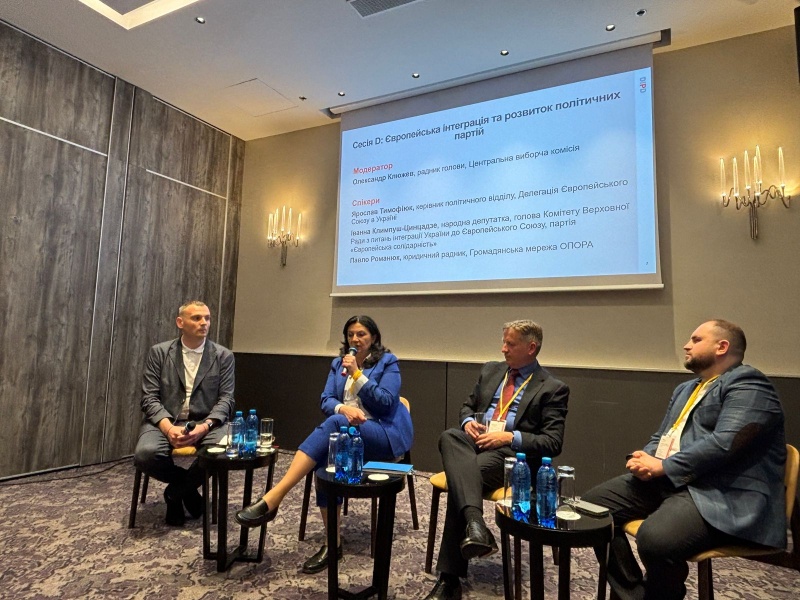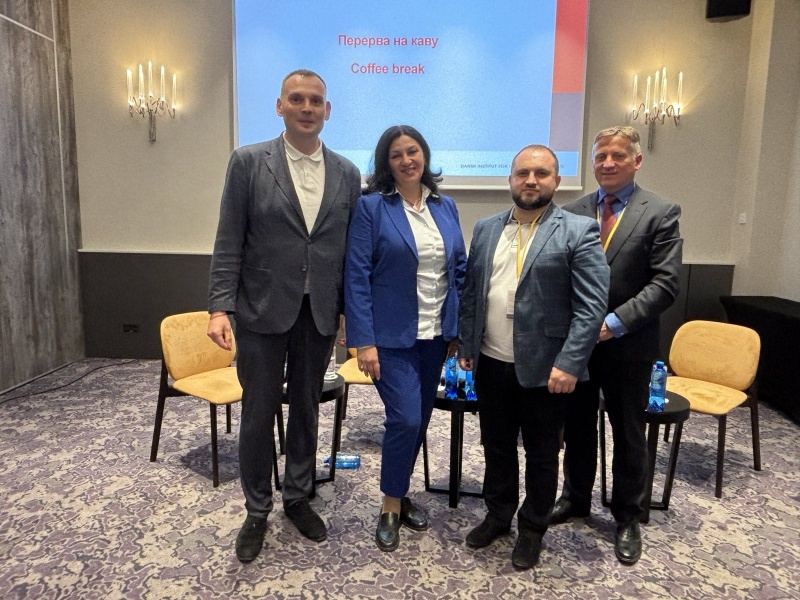Ivanna Klympush-Tsintsadze took part in a discussion on European integration and the development of political parties in Ukraine
23 May 2025, 11:38

Speaking during a panel on European integration and the development of political parties, Ivanna Klympush-Tsintsadze noted that the current situation for political parties in Ukraine is challenging.
“We are in a very difficult situation when it comes to ensuring checks and balances, conducting internal parliamentary dialogue, and fostering public dialogue that includes not only parliamentary but also non-parliamentary political forces,” she said. She stressed that building constructive dialogue requires political culture and a willingness to engage. “Today, we see a lack of respect for differing viewpoints. And if we speak of a mature European society, it is precisely about engaging in difficult conversations. In the context of European integration, we must create platforms for honest dialogue that include a range of perspectives,” Klympush-Tsintsadze emphasized.

At the same time, she noted that the current authorities are not ready for such dialogue:
“Today, there is no readiness on the part of the Ukrainian government for an inclusive dialogue — one that may be difficult but would ultimately lead to more stable and lasting solutions that reflect the interests of different segments of society represented by various political forces.”
Even in the preparation of such important documents as roadmaps outlining key reforms and transformations in the European integration process, Klympush-Tsintsadze believes that the involvement of political parties in parliamentary working groups is not equitable. “Not all political forces were included equally in each working group. Moreover, I believe this undermines the mechanism of parliamentary oversight over the government’s work and devalues it. As of now, the process of involving MPs has become merely declarative,” she said.
The Chair of the Committee on Ukraine’s Integration into the EU also stressed that Ukraine should use the European integration process as a tool to uphold rights and freedoms within the country.
“Thorough public, journalistic, and parliamentary oversight, restoring the Parliament’s capacity, as well as monitoring by our international partners — this is the level at which we must find security mechanisms that can be used to safeguard democratic procedures. This is necessary to prevent excessive restrictions, including the abuse of influence over law enforcement bodies, which is what we are seeing today,” Klympush-Tsintsadze concluded.